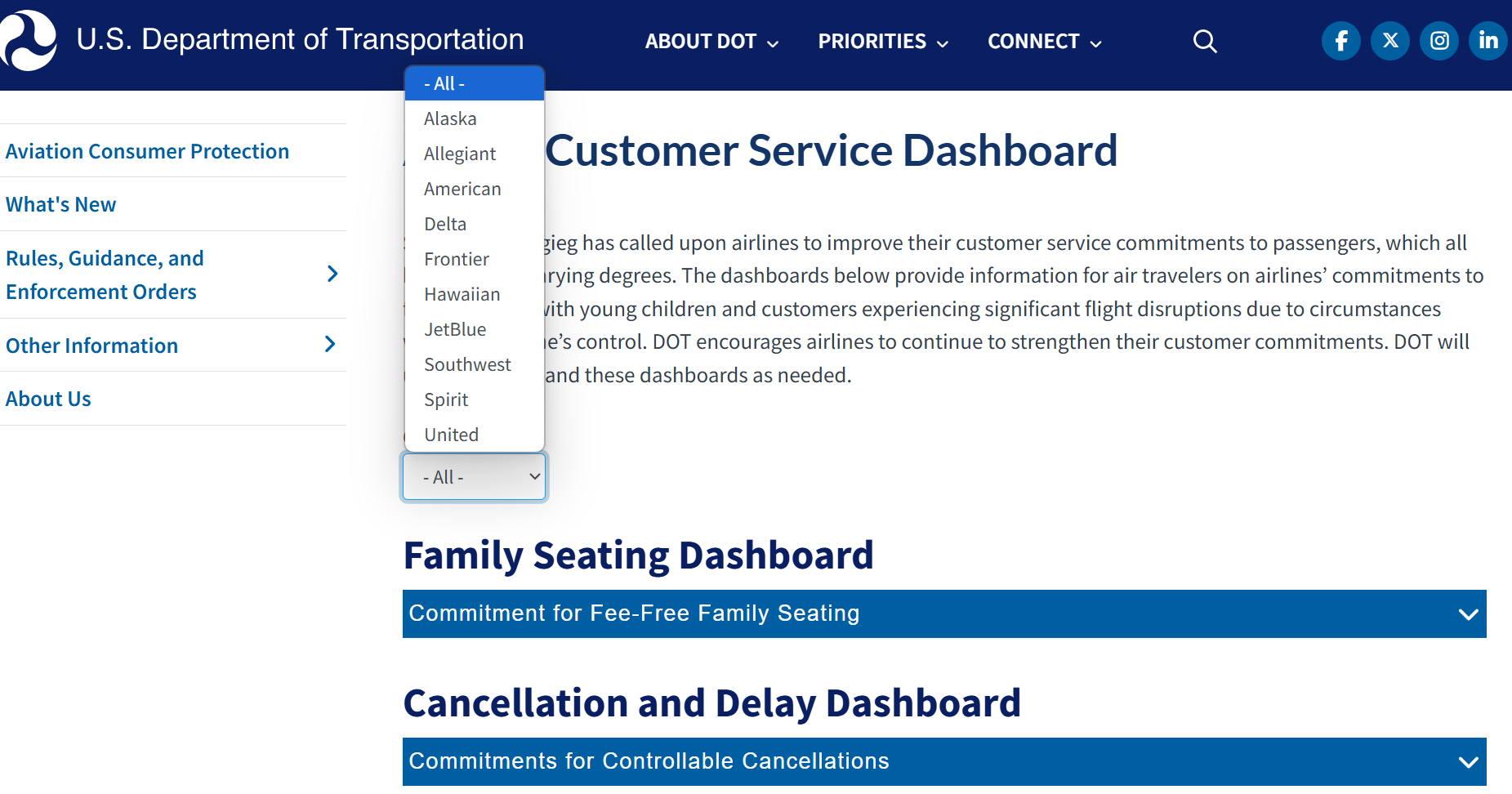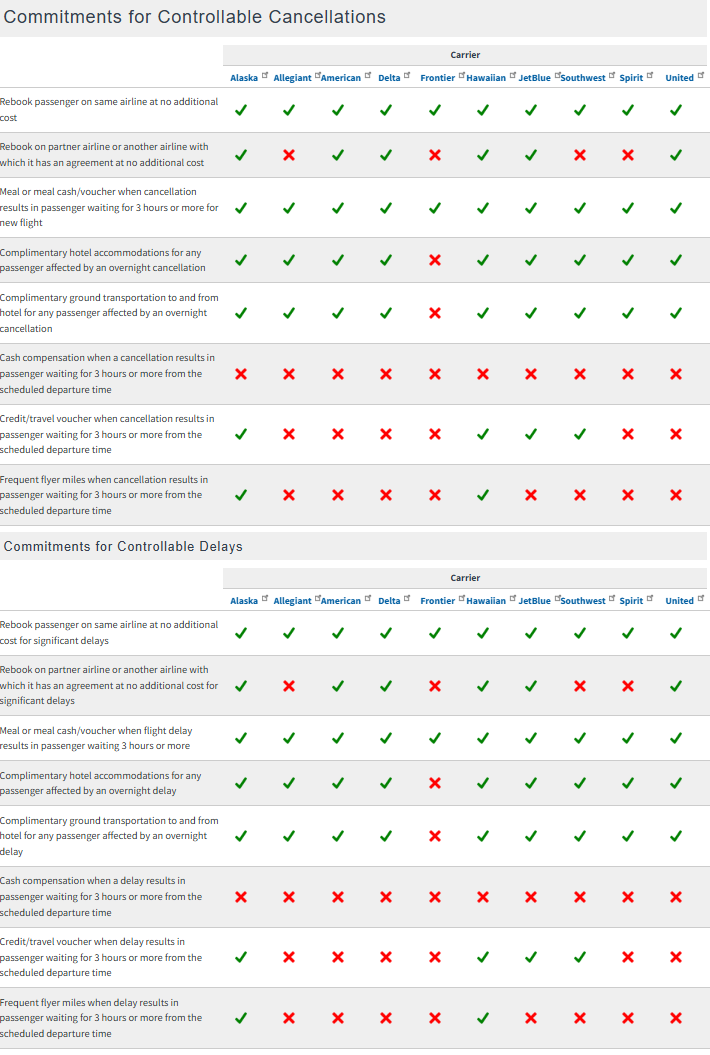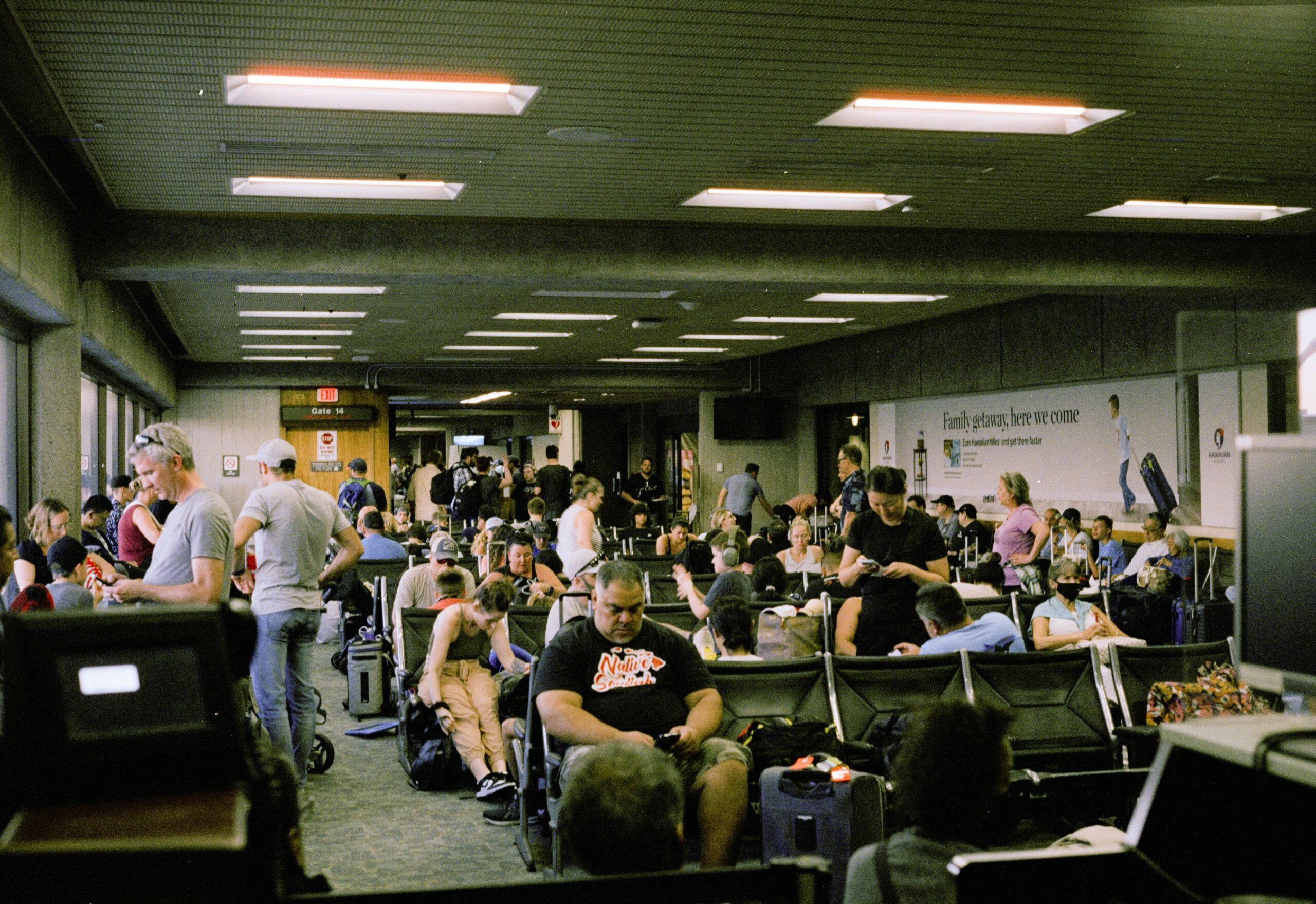April 24, 2025
DOT Airline Consumer Protections
Heather H.
At some point in your travel journey, you’ve probably been stuck at the airport with a delayed or canceled flight, wondering if or how you’d ever get your money back. The good news? The U.S. Department of Transportation (DOT) rolled out new rules in 2024 that finally hold airlines accountable in these frustrating situations. Here are some important DOT airline consumer protections you may need someday.

New protections from DOT may ease some travel headaches.
In this post, we’ll break down exactly what these new DOT protections are and what they mean for you, and share some helpful tips if you are dealing with a delayed or canceled flight.
New Protections At a Glance
Automatic refunds for cancellations or delays
Airlines must automatically issue refunds if your flight is canceled or significantly changed and you choose not to take a new flight. A significant change means a delay of 3 or more hours for domestic flights or six or more hours for international flights (or if there was a change in departure or arrival airport).
Refunds must be cash back (not just travel credits) and must occur within 7–20 days, depending on your original payment method.
Fee Transparency
Airlines must disclose all fees, such as baggage, seat selection, change fees, etc., up front before you purchase your tickets.
Passenger rights dashboard
Airlines are now required to link to a DOT dashboard that shows passengers their rights when things go wrong. You can also find out which airline offers refunds, rebooking, meals, and hotel stays during delays or cancellations. You’ll typically see airlines display this link on their websites under the Customer Service Plans section.
Check out the DOT Dashboard and select from the drop-down which airline you want to review to see your rights:


A controllable cancellation or delay is within the airline’s control, not due to external factors such as weather. Examples of controllable cancellations or delays would be due to maintenance or crew problems, cabin-cleaning issues, baggage-loading issues, fueling problems, or airline IT issues.
What does this mean for you?
- Less stress! If your flight is canceled or delayed significantly, you’ll know you can get a refund without fighting for it.
- No more hidden fees! These airlines must show you all fees upfront before purchasing your ticket.
- You have the power! Knowing your rights up front will help if something goes wrong.
Tips for Navigating Airline Issues
Document everything! Keep emails and receipts. Save your confirmation emails and take screenshots of flight times and any flight changes.
If your flight is delayed or canceled, ask a gate agent about your refund. Hopefully, you won’t have to, but it could help.
If an airline refuses a refund, file a complaint with the DOT. Airlines are required to abide by these new rules, but if you know they are not, make sure to file a complaint with the DOT so the airline can be held accountable.

Take proactive steps such as booking with reputable airlines and using credit cards that offer travel protections for extra coverage.
Bottom Line
These new protections are a big win for travelers. Next time your flight gets delayed or canceled, you’ll have more rights, better information, and a more straightforward path to getting your money back. Stay informed, keep all of your documents, and don’t be afraid to ask for what you’re owed. The DOT Airline Consumer Protections are here to make travel a little less stressful.
Want a printable/downloadable cheat sheet to take with you? Click here to download one.

Related Posts

Opinions, reviews, analyses & recommendations are the author’s alone, and have not been reviewed, endorsed or approved by any of these entities. American Express is a Travel Mom Squad advertiser, but we always show the best public offer even when we don’t earn a commission. Terms Apply.
Leave a Reply
Advertiser Disclosure: Travel Mom Squad has partnered with CardRatings for our coverage of credit card products. Travel Mom Squad and CardRatings may receive a commission from card issuers. This compensation may impact how or where products appear on this site. Travel Mom Squad has not reviewed all available credit card offers on this site.
Editorial Note: Opinions expressed here are author's alone, not those of any bank, credit card issuer, hotel, airline, or other entity. This content has not been reviewed, approved or otherwise endorsed by any of the entities included within the post.
be the first to comment
Responses are not provided or commissioned by the bank advertiser. Responses have not been reviewed, approved or otherwise endorsed by the bank advertiser. It is not the bank advertiser’s responsibility to ensure all posts and/or questions are answered.